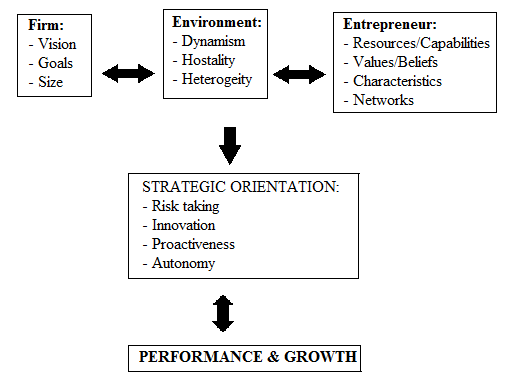Entrepreneurship
The word entrepreneur originates from the French word, entreprendre, which means “to undertake.” The concept of entrepreneurship has varied meanings.
- Entrepreneur is considered to be a person with high aptitude and risk-taking ability ready to make a change; and
- Entrepreneur is any person who wants to work for their own self, i.e., wants to start their own business enterprise.
Both these meanings are not co-related, however, they both form the meanings of an Entrepreneur.
Entrepreneurship is not just coming up with a great concept to start up a business. That is just a part of it. Successful entrepreneurship involves much more than just having a great idea or creating a new business venture. It is actually a mind-set that starts right from the beginning. It is a way of thinking and implementing your ideas. It is about generating new and innovative ways to resolve issues effectively, reach target audience in an affordable manner, and create market position with a steady pace, taking into consideration the availability of resources, changing demand patterns of the audience and most importantly the objectives and profits of the business.
Entrepreneur
The person who comes up with the idea to start a business venture, takes risks in the form of his own money, time, and resources involved, taking a benefit of an opportunity and making major decisions for this business is called an Entrepreneur. This might also involve a team, which is known as an Entrepreneurial Team, wherein a person who has an idea can involve one or more of his friends, college-mates, ex-colleagues, etc. who possess different skill set and can bring in some capital, resources, knowledge and experience. This will divide the risk and nurture the business concept with different and fresh ideas. The responsibilities can be easily delegated to different people based on their specialised areas.
For example, if a college graduate or a tech guy working from nine to five, does not want to get into the monotonous robotic routine, instead wants to create something on his own, say an app for the smart-phones that works on all the operating systems. He has an idea/concept in his mind and has calculated all the important aspects involved in starting up this venture as well as taking it forward to the target audience and making it a full-fledged business. He can both do this alone and become an Entrepreneur, or he can ask his mates or colleagues to join in and contribute. If they see this as a viable idea for long-run or do not want to join the routine job, they would join in. Along with it, they’ll bring in their own ideas, opinions, expertise, and resources, which will not only foster the business, but also divide the risk among all the members of the Entrepreneurial Team.
Types of Entrepreneurs
Entrepreneurs are widely classified into various categories. There is no set basis on which the entrepreneurs are classified. Categorization can be done on the basis of:
Type of business
- Business
- Trading
- Agricultural
- Corporate
- Social
- Industrial
Technology
- Technical
- Non-technical
- Professional
Motivation
- Pure
- Induced
- Motivated
- Spontaneous
Growth
- Growth
- Super-growth
Stages of Development
- First-generation
- Modern
- Classical
Ownership
- Private
- State
- Joint
Gender and Age
- Men
- Women
- Young
- Old
- Middle-Aged
Size of Enterprises
- Tiny-scale
- Small-scale
- Medium-scale
- Large-scale
Area
- Urban
- Rural
Clarence Danhof
- Innovating
- Imitative
- Fabian
- Drone
These are some mentioned categories under which the entrepreneurs are classified. However, universally there might be more categories.
Traits of an Entrepreneur
Entrepreneurs possess various qualities and traits that make them different and unique. It can be their mind-set, expertise, risk-bearing ability, knowledge, technical know-how, creativity and innovation, resources, so on and so forth. They are disciplined, optimistic and confident self starters. They embrace new and fresh ideas and changes crossing their way. Following are the universal qualities that an entrepreneur has:
- Focused (clarity in terms of objectives and goals, profit oriented, use timelines, crisp and clear communication, focus on human element)
- Confident (self-awareness, action-oriented, conviction, pro-active, futuristic, avoid short-cuts)
- Creative Thinker (new and fresh ideas, curious, alert, synthesised solutions, imaginative, quick learner, prioritises, balances between present & future)
- Delegator (encourages team contribution, maintain equilibrium between authority & responsibility, determine people’s expertise, give effective feedback)
- Determined (eager to learn & act, shares optimism, persistent, face and overcome obstacles, alertness toward changing environment)
- Independent (Self-belief, multi-tasking, dedication towards main objective, ‘can-do attitude’)
- Knowledge-seeker (share and welcome ideas, anticipate & use knowledge as an asset, communicates to get others’ viewpoints and opinions both in and out the organization, drive for in-depth information, prioritise)
- Strong People Skills and Work Ethics (enthusiastic, speaker and communicator, arrives first & leaves last, leader, sell a product and/or service, motivate and encourage people around, highlight the benefits of any situation, use different media to communicate and inspire, meet expectations)
- Relationship-builder (Network inside and outside the business, diversify beneficial links, selective, socially aware and exposed, open-minded, reciprocity, integrity)
- Risk-Taker (rational decision maker, practical and logical approach, charismatic and bold, optimistic and calm, will to win and deal with complex situations, take incremental risks and systematically experiment)
“Entrepreneurship is the horse, and innovation is the cart,” Clifton and Badal explain.
Corporate Entrepreneurship vs Social Entrepreneurship
-
Corporate Entrepreneurship
Corporate Entrepreneurship has been recognized as a prospectively viable means for promoting and maintaining the performance, renewal and corporate competitiveness of an organization over the past couple of decades. The entrepreneurial activities assist organizations to develop new business-lines that further sources for revenues. Corporate Entrepreneurship activities also improve a company’s work culture by promoting product and process innovations, thus leading to success. Corporate Entrepreneurship is incorporating risk bearing, pro-activeness and progressive product innovations. These Corporate Entrepreneurship activities can enhance organizational growth and profitability and, their impact may increase over time depending on the organization’s competitive environment. The practical evidence is gripping that Corporate Entrepreneurship boosts company’s performance by enhancing the firm’s pro-activeness and willingness to bear risks, and by instigating the development of new products, process and services by upgrading its competitiveness.
Creation of corporate entrepreneurial activity is not an easy task as it involves changing the internal behavioral patterns of an organization. The environment plays a major role and radical influencing. It has been agreed on that the external environment is an important factor leading to Corporate Entrepreneurship.
Corporate Entrepreneurship has been known for renewing and revitalizing current companies. It serves as a tool for business development, revenue growth, profitability enhancement and instigating, developing and innovating products, services and processes (Kuratko et al., Lumpkin & Dess, Miles & Covin, Zahra, Zahra & Covin, Zahra et al.).
Recommended courses
- Certification Training in International Marketing
- SEO Courses
- Rural Marketing Training Courses
-
Social Entrepreneurship
A rapidly growing and dynamic sector of the industry today, social entrepreneurs play a pivotal role in providing products and services with the prime motive of creating social well-being, operating from a 3-tier bottom line perspective benefitting People, Planet, and Profit. Profit in the social enterprises is reinvested into the enterprise rather than being distributed among the stakeholders and founders. Social enterprises operate on different models. Such enterprises have an entirely different legal structure created, thus distinguishing them from charities, in being self-sustaining through income. Social enterprises have been persistently survived for any economy and contribute remarkably to the revenues.
Social entrepreneurship prioritizes far beyond just generating a profit, and measures its performance based on the impact the business makes on the society as well as economy. This responsibility of focusing on generating and maximizing positive social returns differentiates the social entrepreneurial business from the conventional and outdated “corporate social responsibility” approaches which tend to occur only when healthy profits have been made by the businesses.
People finding meaning in their work are shifting to social entrepreneurship which kills two birds with one arrow by helping the society and succeeding in their ambitions with a different approach altogether. Social entrepreneurs are demographically spread across the world from young to old and from different type of background, stature, and education.
Social entrepreneurs are innovators who commit themselves to the need of the society, and on making products and services that solve social issues and problems. Unlike traditional startups and business ventures, their goal is to make the world a better place to live in, and not to take market share or to generate profits for the founders. Social entrepreneurs may be categorized as:
- Nonprofit
- For-profit, or
- Hybrid.
Christopher Poizat, Founder & President of International Network of Social-Eco Entrepreneurs has defined Social Entrepreneurs as, “people who recognize social problems, decide to roll up their sleeves and get into action using entrepreneurial principles to organize, create, and manage a venture to implement social change that is sustainable, good for the planet and for the highest good of humanity.”
Are social entrepreneurs really ‘Entrepreneurs’?
The social entrepreneurs truly possess entrepreneurial traits, but with a completely different mindset and skill sets. They are the ones who are wholly and solely involved in activities benefiting the society and focus on its well-being. They mainly emphasize on impacting the social, economic, and cultural environment of the nation in a positive and constructive manner. Social Entrepreneurs want to make a difference to the world: they are passionate and eager about the cause that they have chosen and are highly motivated and enthused about their mission to change the society and help the ones in need.
Corporate Entrepreneurship vs Social Entrepreneurship
| Basis | Corporate Entrepreneurship | Social Entrepreneurship |
| Main Objective | Building a business and maximizing profits | Creating social change |
| Wealth Creation | Wealth is same as Profits | Wealth means creating and maintaining social and environmental capital |
| Measure of Profitability | Benefiting shareholders and investors | Engage in for-profit activities |
| Investors | Venture Capitalists | Philanthropists |
| Emphasis on Team and Individual | Venture Capitalists invest in business on the basis of company’s leadership team and the organization supporting it | Individuals raise and donate money for charitable causes on the basis of viability of the project gauged by the individual in charge. |
| Performance Measurement | Corporate entrepreneurs can rely on relatively tangible and quantifiable measures of performance such as financial indicators, market share, customer satisfaction, and quality. | Measuring social change is difficult due to its non-quantifiable and multi-causal characteristics, and perceptive differences of the social impact created. |
Entrepreneurs whether social, corporate or any other, majorly focus on creating profits whether for the organization or social well-being. The foremost responsibility is to benefit the people either inside or outside the organization. The entrepreneurs tend to start a business venture in order to bring changes in their lifestyle, and routine, and tend to boost social and economic development. Entrepreneurship is generating a business, starting and running a new business, and maintaining it in a long-run. Entrepreneurs take and bear risks, are focused, determined, innovative and creative, confident and bold, posses a can-do and go-getter attitude. They are self-motivated and have strong work ethics and people skills. The best part about entrepreneurship is that the business idea can be small or big, whether in an urban area or rural, involving any amount of capital, tangible or intangible, its gives an opportunity to grow and make changes in the society to the person or group generating the idea. These changes can range from generating employment opportunities to impacting the society in a positive manner.
Encouraging the idea and concept of entrepreneurship always leads to more improved and satisfied economy, as it gives the liberty to the people to turn their dream or idea into a full-fledged business plan, further generating employment, which leads to improved standards of living and welfare of the people, further resulting into a developed economy. Entrepreneurs are considered as the national assets to be encouraged, motivated and remunerated to the best extent.
Entrepreneurs have a powerful ability to change the way a society survives and runs. If successful, their innovations might enhance our standards of living. In short, an entrepreneur not only creates wealth and generates profits from the business venture, but also they also create jobs and the conditions for a developing society.
Recommended Articles
Here are some articles that will help you to get more detail about the Corporate Entrepreneurship vs Social Entrepreneurship so just go through the link.





